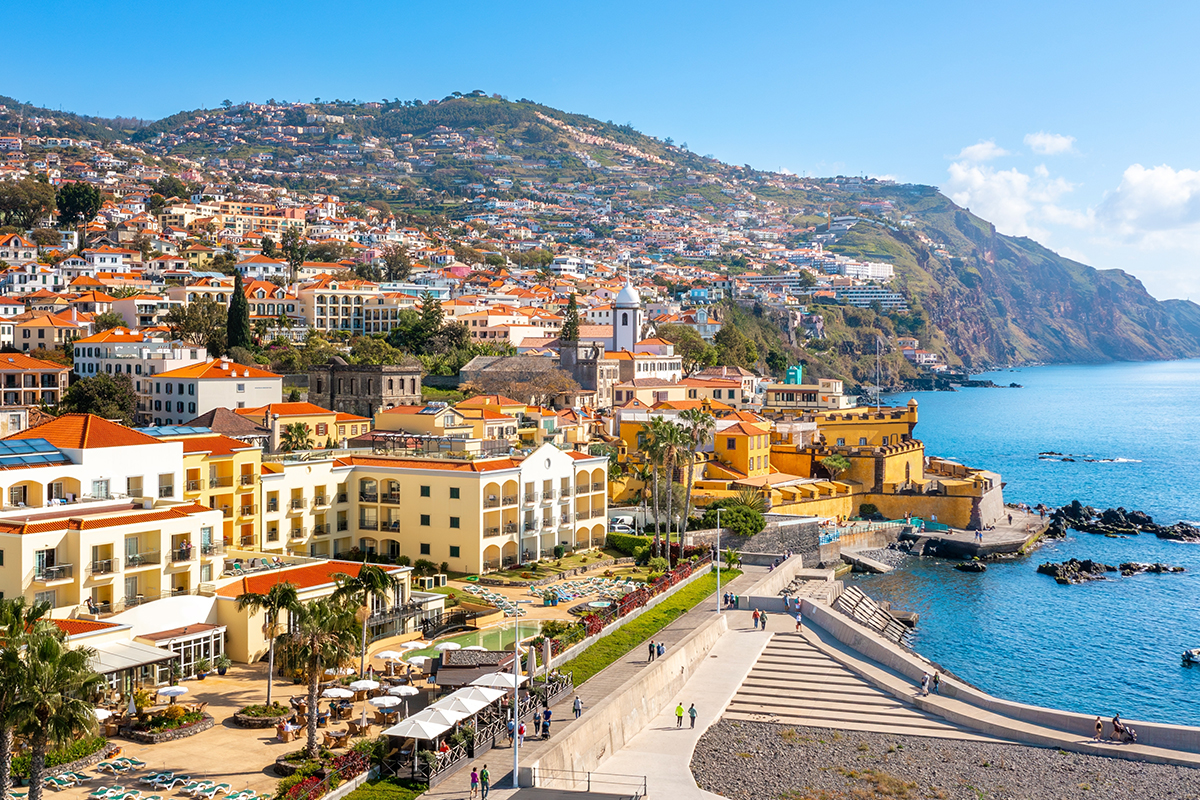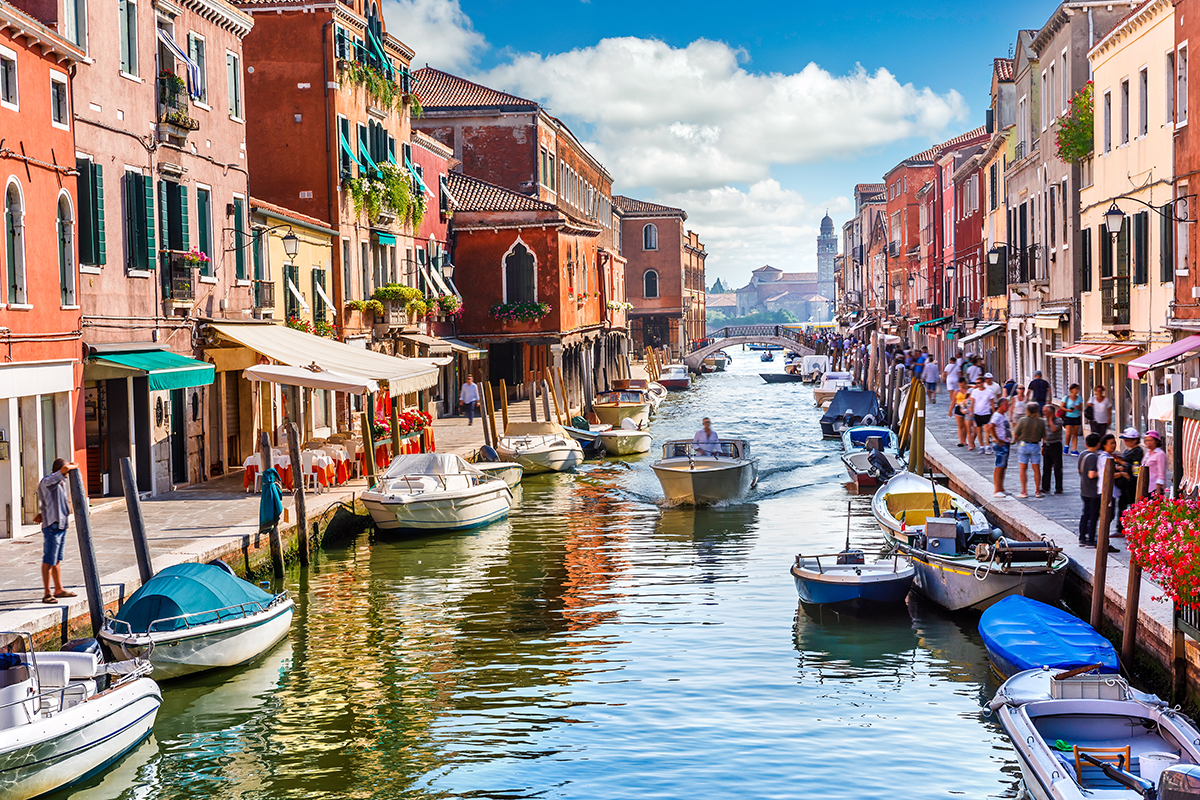As tourism continues to boom in many of the world’s most popular destinations, those who live in these beautiful places are feeling the strain. Recent protests in European cities like Barcelona, Mallorca, and Amsterdam highlight the growing global concern about the negative effects of mass tourism on local communities. These once-celebrated destinations have been overwhelmed by the sheer number of visitors, resulting in a range of problems.
From overcrowding and rising prices to the preservation of local heritage and quality of life; the challenges of over-tourism are a real threat to these bucket list destinations. Join Expat Explore as we delve into the complexities of this issue and explore how we can all contribute to a more sustainable and enjoyable travel experience for both locals and visitors alike.
Related: Explore these lesser-known destinations, perfect for photographers seeking unique and breathtaking landscapes without adding to over-tourism.
The effects of over-tourism
We all have our bucket list destinations we want to visit and tick off. Unfortunately, a lot of us share the same wants. Paris, Amsterdam, Venice, and so many more incredible cities have long been the most visited places in the world.
While popular travel destinations offer incredible experiences for visitors, the downside of over-tourism is becoming increasingly apparent. As more people seek out these wanderlust-worthy destinations, the local residents often bear the brunt of the burden of increased numbers. Let’s explore the challenges these residents face.
Crowds and congestion
One of the most pressing issues faced by these tourist hotspots is the sheer volume of visitors. Crowds can overwhelm local infrastructure, leading to traffic congestion, long wait times for attractions, and a general sense of chaos. This can make it difficult for locals to go about their daily lives and deter potential visitors who are seeking a more peaceful experience.

Related: View our range of Low Season Tours for a less crowded travel experience. And help fight over-tourism at the same time!
Rising housing costs
The influx of tourists has also raised housing costs in many popular destinations. As properties are converted into short-term rentals, such as Airbnb listings, the supply of affordable housing for locals dwindles. This can lead to displacement. As locals are forced to move further away from their communities or into more expensive accommodations. This is one of the biggest global concerns as it directly affects future generations and their quality of life.

Loss of local character
When a place gets too popular, it can lose its unique charm. Hidden gems turn into tourist traps with the same old souvenir shops and chain restaurants. Taking away the very reason why people, both locals and visitors, love it.

The answer to over-tourism? Tourism restrictions!
Although over-tourism is associated with negative impacts, all is not lost. Countries and cities are taking measures to tackle these negative side effects with tourism restrictions. 2024 has been a big year for implementing measures to protect the world’s iconic sites and the people who call them home. Let’s take a look at some of the tourism restrictions that have come into effect.
Protecting Portugal
In recognition of these challenges, Portugal has taken a proactive approach to managing tourism. The country has implemented strict Airbnb restrictions. Limiting the number of properties that can be rented out for short-term stays in certain areas. The aim is to limit the impact that tourism has on the housing market and protect locals from being outpriced of their homes.

Related: Discover Spain & Portugal responsibly on a group tour.
Keeping Venice’s charm afloat
The renowned Italian floating city of Venice has implemented new regulations aimed at managing the flow of tourists to preserve its unique character.
One of the most significant changes is the introduction of limits on tour group sizes. Tour groups are now restricted to a maximum of 20 people. Ensuring that the city’s narrow streets and delicate structures are not overwhelmed by large crowds. This will not only benefit locals but will make travelling to this iconic destination a much more pleasant experience for everyone. Smaller group sizes mean there will be more room to roam freely and soak in the alluring charm of this beautiful city.

Related: When you visit Venice and tour Italy with Expat Explore, you can rest assured that all restrictions are respected!
Guarding Japan’s Gion district
The Gion district of Kyoto, Japan, is renowned for its Geisha culture. A cherished tradition that dates back centuries. To preserve the authenticity and integrity of this cultural heritage, some sections have been closed off to tourists to protect the privacy of the Geisha community. Allowing them to practise their traditional arts in peace.
By protecting the privacy of the Geisha community, Gion is ensuring that the tradition of Geisha culture can continue for generations to come. This preservation helps to maintain the authenticity and integrity of the culture. Allowing visitors to experience a truly unique and authentic aspect of Japanese culture.

Related: Experience the Highlights of Japan for yourself and see why this beautiful culture needs to be preserved!
The rise of tourist taxes
One of the most significant trends in international tourism is the increase in tourist taxes. These fees are levied on visitors to help fund local infrastructure, services, and environmental protection initiatives. Several popular destinations, including Amsterdam, Iceland, and Bali, have implemented tourist taxes in recent years for the benefit of preserving their sights.

How to be a responsible tourist
As tourists continue to explore the world, it’s essential to remember that we’re visitors in someone else’s home. Being a responsible tourist means respecting local customs, supporting local businesses, and minimising our environmental impact.
Choose to travel to lesser-known places and if you’re looking to tick off some of the world’s most popular sites, avoid travelling in peak season to help with overcrowding. The world has a treasure trove of lesser-travelled destinations that hold the same amount of natural beauty and history as the most popular destinations. This is the time to start exploring more than just the “top destinations” to visit!
Preparing for your next adventure
While these changes might add some extra considerations to your travel plans, they ultimately aim to improve your experience and protect the places you love. Research your destinations beforehand, factor in any new fees, and consider booking your accommodations and popular sites in advance, especially during peak seasons.

Remember, responsible tourism benefits everyone. So pack your bags, explore the world with an open mind, and help us conserve these amazing destinations for future generations!
Find your next journey with our range of guided group tours that take pride in providing sustainable, affordable, and local experiences!